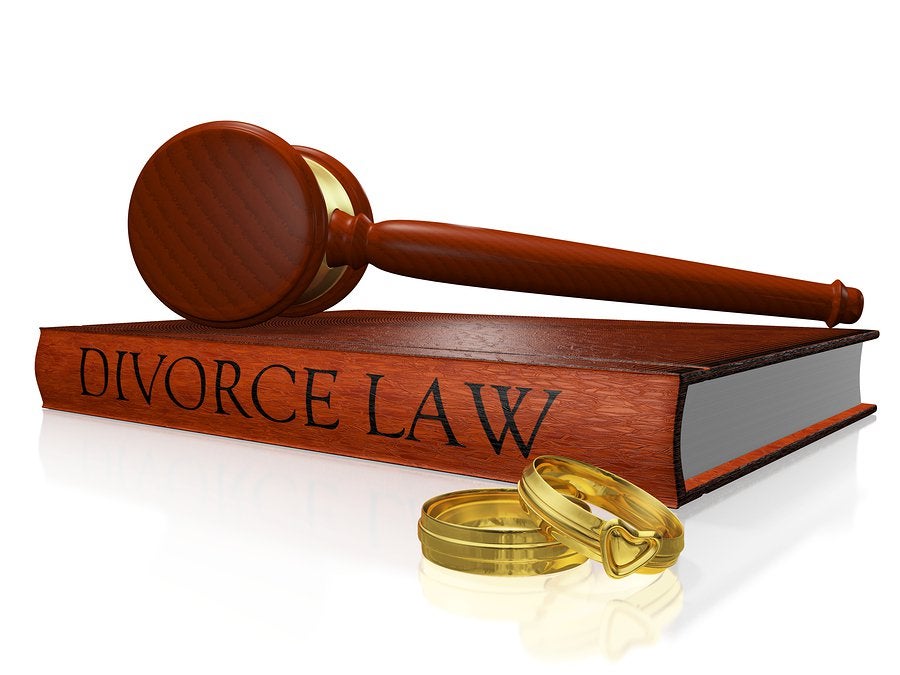-
How Is Child Support Calculated?
Child support is one of the many issues that must be resolved during divorce. Child custody laws require you to pay child support if you are the non-custodial parent. The amount of child support you must pay depends on many factors, including your state’s guidelines, the income of both parents, childcare needs, and medical expenses. For personalized guidance, you should contact a child custody lawyer serving Baltimore County and Owings Mills.
You can also watch this video for general information about child support after a divorce or legal separation. It explains that your family lawyer may instruct you to add any alimony you receive or subtract any alimony you pay when calculating your net annual income. Other factors that may influence the amount of child support include whether you currently pay child support for other children.
-
Tips for Preparing Financially for Divorce
It’s no secret that divorce can create financial problems. You’ll need to pay court fees and the fees of your family law attorney near Owings Mills—and those are only the short-term financial consequences. On a long-term basis, you’ll most likely need to rearrange your budget to account for a single income. Depending on child custody, you may need to pay child support. Under family law , you may also have to pay alimony. Additionally, you may need to make alternative living arrangements. To place yourself in a position to move forward with your life as quickly as possible, it’s best to begin preparing financially for divorce as soon as you’ve made the decision to leave your spouse.
Make Copies of Important Documents

It’s not uncommon for one spouse to be less than completely aware of the household finances. However, your family attorney will need to review important documents such as your tax returns. Compile documents pertaining to investments, expenses, and debts, and make copies to bring to your appointment with the divorce lawyer.Make a List of Assets and Liabilities
While you’re sorting through your financial documents, begin making a list of all of your liabilities, or debts. Make a note of whether the debt is in your name, your spouse’s name, or held jointly. Similarly, make a list of all liquid assets, including bank accounts and investments, and non-liquid assets, such as real estate and vehicles.Establish Your Own Accounts
If you don’t already have your own bank accounts, it’s a good idea to open checking and savings accounts that are only in your name. However, avoid closing or removing your name from any joint accounts until you speak with your family attorney about this matter. Many people who are preparing for divorce also begin saving cash for legal fees and living expenses during the divorce proceedings.Speak with a Financial Advisor
Make an appointment with your financial advisor and inform him or her that you’re planning a divorce. He or she can help you understand any issues that may apply to your situation, such as changes in your taxes. Consulting a financial advisor is particularly important if the other spouse handled all or most of the household finances. The financial advisor can walk you through the basics of managing your accounts and creating a single-income budget. -
What Financial Factors Influence Divorce Settlements?
Along with child custody issues, financial matters are typically a top priority during divorce proceedings. Bring along all of your important financial documents when you meet with a divorce attorney serving Owings Mills. Your divorce lawyer will need to review your bank statements and tax refunds, for example. Portfolio holdings can also influence divorce settlements. These include any type of investments, such as stocks, bonds, mutual funds, private equity, hedge funds, exchange-traded funds, and futures. All of these are liquid assets.
Non-liquid assets can also significantly influence divorce settlements. Your divorce lawyer will need to know about property that you own, such as homes, vacation homes, vehicles, high-end jewelry, artwork, and similar physical property. As your family lawyer can explain to you, the court will consider the entirety of your finances when determining how to divide assets and liabilities. Other factors may be relevant to your situation, such as whether one party is ordered to pay alimony or child support.

-
If a Child Custody Agreement Is Violated
Ideally, child custody issues are resolved with a court order. Unfortunately, it’s not uncommon for an ex-spouse to violate this arrangement, even if it is a legal document ordered by the court. If the ex-spouse violates any clause in the child custody order, you should contact your child custody lawyer serving Owings Mills right away. Your divorce lawyer will evaluate the situation and provide legal guidance.
Have Certified Copies of the Court Order
You should always have certified copies of the child custody order on hand. If you only have a verbal agreement with your ex-spouse regarding parenting time, you need to contact a divorce lawyer and request help obtaining a court-ordered child custody arrangement. If the divorce was particularly contentious and your ex-spouse has a history of hostile behavior, you may wish to keep a certified copy of the court order with you when it’s time to pick up your child.Consider Communication with the Other Parent

The police and the courts do not generally encourage requesting enforcement actions for minor violations of the court order. Consider whether the nature of the violation may have harmed your child in any way. If not, consider discussing the violation with the other parent. It may be best to do so in writing, such as by email, so that there is a record of the communication.Keep a Record of Violations
In addition to keeping records of your communication with your ex-spouse, it’s important to keep detailed records of each violation. As soon as the violation occurs or you become aware of it, write down the date and exactly what happened. Make a note of how the incident specifically violated a clause of the court order.Consider Police Intervention
For serious violations of a child custody order, consider contacting your local police department. For example, if you go to your ex-spouse’s home to pick up your child and he or she refuses to let the child go with you, you should generally call the police. Remember that the police cannot take any action unless they see a certified copy of the court order.Contact Your Family Lawyer
Keep your family lawyer informed of the violations. Your family lawyer can send a notice to your ex-spouse advising him or her of the court order. If needed, your lawyer can request that the judge hold the parent in contempt of court. -
How Does Divorce Affect Your 401(k) Plan?
When you consult divorce lawyers in Owings Mills, one of the issues you should discuss is your finances. Your divorce lawyer will review your assets and liabilities , and advise you as to what you might expect from the divorce decree. For example, under family law, your spouse and dependents may be entitled to receive a percentage of the proceeds from your 401(k) plan.
You can hear more about this issue by watching this brief video. This family law attorney explains that the court can issue a qualified domestic relations order, which lists the recipients of a portion of your 401(k) plan. As your family lawyer can inform you, when this order is issued, you’ll be required to send a copy to the administrator of your 401(k) plan.
-
A Look at Recent Changes to Maryland Divorce Law
Divorce laws in Maryland have long been relatively strict compared to family law in other states. However, there have been some recent changes to these laws. Consider talking to your family law attorney in Baltimore County and near Owings Mills about whether these changes may affect your divorce. Specifically, the new legislation may allow your divorce lawyer to help you finalize your divorce much more quickly.
Previous Legal Requirements

You may already know that even if you had an uncontested divorce, Maryland divorce laws required you and your spouse to go through a waiting period before the divorce could be finalized. This applied even in cases in which divorce mediation was successful and the couples reached agreements regarding crucial matters such as asset division, liability division, alimony, child custody, and visitation. The waiting period was one year, which only began on the day that the spouses no longer lived together. If the spouses stayed together for even one night during that one-year period, the waiting period began again. This was particularly problematic for spouses whose financial situations did not allow them to live apart right away, even if they worked out all the details of their divorce. There were a few exceptions to the waiting period. Spouses could finalize a divorce quicker based on several grounds, including if they were accused of adultery or abuse. However, this led many non-adulterous couples to accuse each other of adultery simply to avoid the one-year waiting period.New Legal Requirements
A new law has changed the waiting period requirements, making it easier for your family law attorney to accelerate the divorce process and allow you to move forward with your life. Under the new law, there is no waiting period for couples, provided they do not have minor children. Couples must also agree on property division to take advantage of the accelerated process. Additionally, the new law requires that both spouses attend the hearing to finalize an uncontested divorce in an expedited manner. Not only does this new law allow divorce lawyers to help divorcing spouses to move forward with their lives, it also restores a measure of privacy to the divorce proceedings regarding the residency of the spouses. -
Do Grandparents Have Visitation Rights in Maryland?
For all matters pertaining to family law , including grandparents’ rights, it’s highly advisable to seek the counsel of an experienced family attorney near Owings Mills. Family law is particularly complex with respect to grandparents’ visitation rights and the outcome of the case depends on the specific circumstances. In Maryland, a family lawyer may file a petition on behalf of a grandparent to seek visitation rights with a child. The court is allowed to grant visitation rights to grandparents provided the visitation is considered reasonable and it is in the best interests of the child.
However, as your family law attorney can advise you, legal precedent has determined that the court will most likely not order visitation unless certain elements are present. In other words, the court is unlikely to order visitation with a grandparent despite objections from the custodial parent. It may only do so if the grandparent can bring evidence demonstrating that the custodial parent is an unfit parent, that the custodial parent has denied visitation with the grandparent altogether, and that this denial of visitation is demonstrably harmful to the child.

-
Answers to Common Questions About Alimony Laws in Maryland
Your family lawyer can help you navigate every aspect of the divorce process, including alimony. Your family law attorney in Baltimore County and near Owings Mills can help you understand the factors the court may consider when deciding whether to award alimony, how large the payments will be, and how long the payments will continue. Be sure to write down any questions you may have about alimony when you visit your divorce lawyer.
How Is Alimony Calculated?

Alimony laws in Maryland do not establish a specific formula for determining alimony in divorce cases. The court is given the discretion to establish orders on a case-by-case basis. However, your family lawyer may be able to provide you with an estimated outcome based on his or her past experiences in court and the specific facts of your case.What Factors Will a Judge Consider?
To determine alimony, a judge in Maryland can consider a wide range of factors. These include:- The length of the marriage
- The standard of living for the household during the marriage
- The ages of each spouse
- The mental and physical condition of each spouse
- The needs and financial resources of the spouses
Additionally, the judge is likely to evaluate the earning capacity of the spouse who is requesting alimony . If this spouse needs education or vocational training to find gainful employment, the judge will consider how long the spouse may need.
How Long Must an Individual Pay Alimony?
There is no set timetable for alimony under Maryland laws. The judge may order retroactive alimony payments from the date the spouse filed the petition. Alimony may be paid for a set period of time or indefinitely. If alimony is established for a set period of time, Maryland law allows the recipient spouse to seek an order extending alimony for another specific period of time or indefinitely so long as no agreement is made to the contrary.Is Alimony Taxable?
Alimony is not the same as child support. Although child support is not typically taxable, alimony is typically taxable. The spouse who receives alimony must pay taxes on the payments. The spouse who pays alimony may deduct the payments from his or her income.
RECENT POSTS
categories
- Uncategorized
- Divorce
- Infographic
- reviews
- Accidents
- Divorce Law
- Maryland Divorce Law
- Child Custody
- Alimony
- Indefinite Alimony
- Divorce Lawyer
- Annulment
- Kent L. Greenberg
- Matthew J. Rudo
- Child Support
- Credit Card Debt
- Remarriage
- Divorce Papers
- Child support law
- Alimony laws
- divorce process
- Alimony Payments
- Absolute Divorce
- Contested Divorce
- divorce attorney
- family attorney
- family law
- No-Fault Divorce
- Family Care Plan
- financial statement
- Online Divorce
- lawyer
- Uncontested Divorce
- Law Office of Kent L. Greenberg
- P.A.
- Joint Custody
- Senior Divorce
- DIY Divorce
- Car Accident Attorney
- Greenberg
- Personal Injury Law
- Domestic violence
